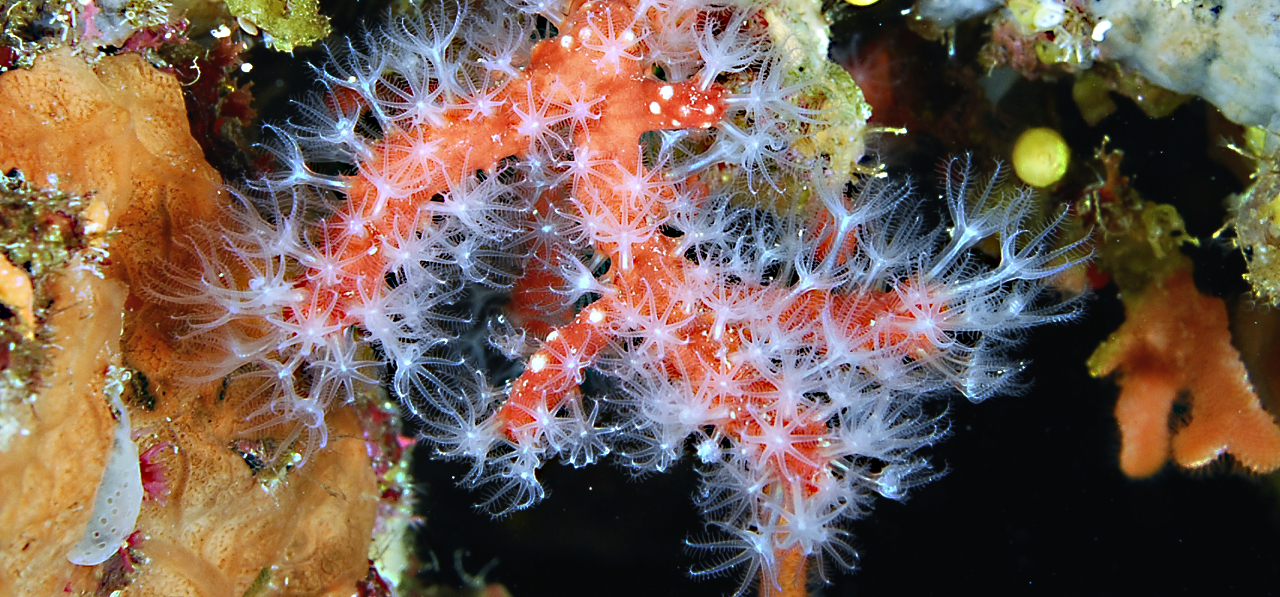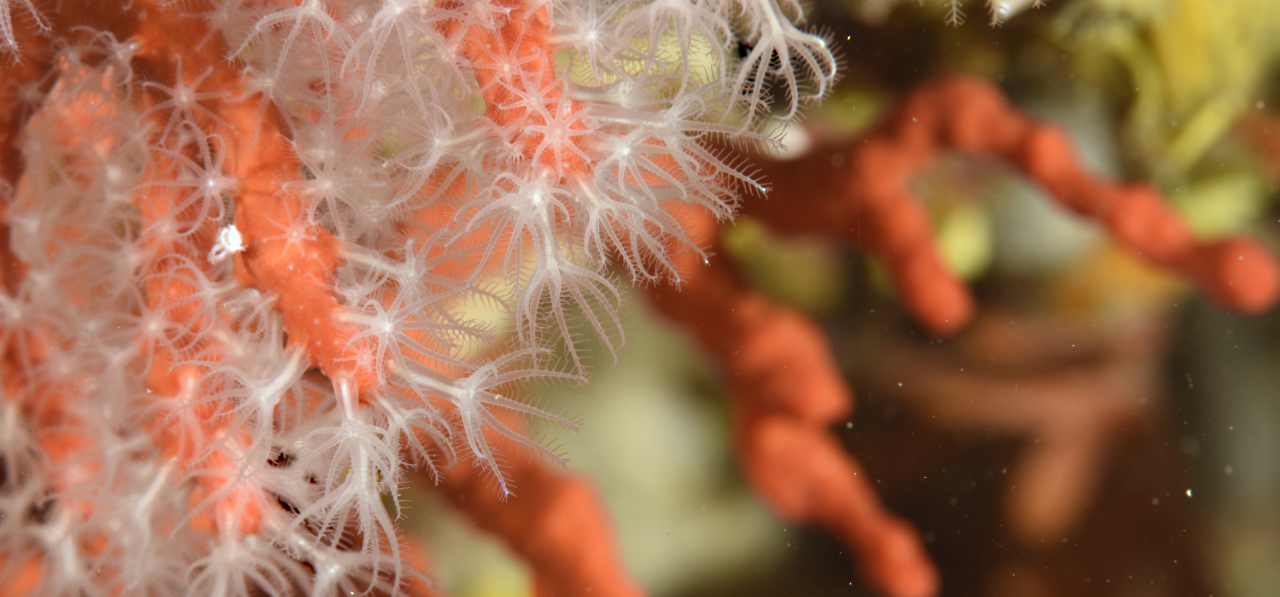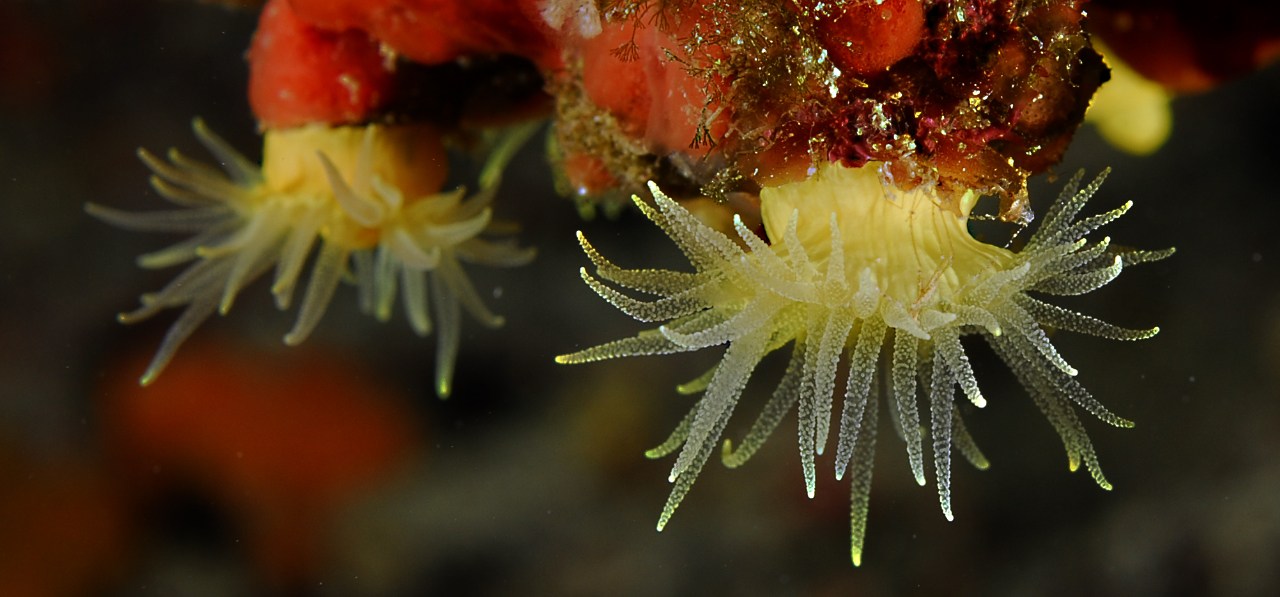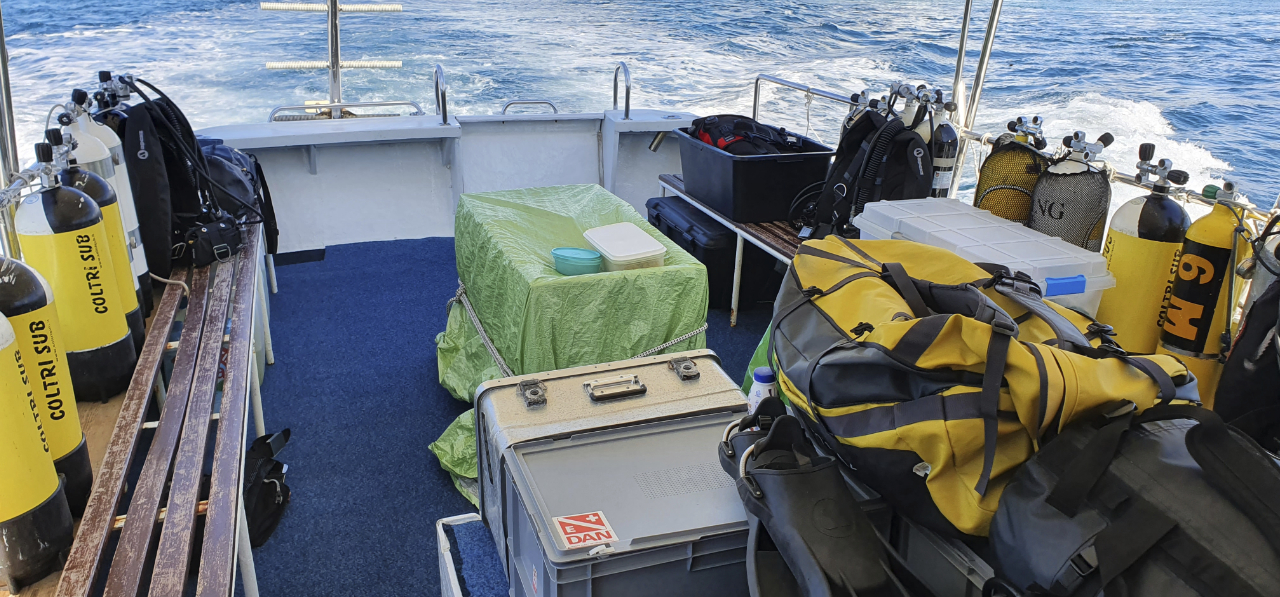Funding: Croatian Science Fund (HRZZ): Research Grants (lP-2O19-04)
Project duration: 01. 02. 2020. – 31. 01. 2024. (48 months)
Project leader: Petar Kružić, PhD, Associate professor
Project number: lP-2019-04-3389
Funding (HRZZ): 998.425,00 HRK

PROJECT SUMMARY
The proposed project is based on scientific and field experience gathered during the assessment of mass mortality impact in different areas of the Adriatic Sea. The project has been developed focusing in main coral species dwelling in shallow waters (0-50 m) in the Eastern part of the Adriatic Sea. However, the project can be adapted to assess the impact on other macrobenthic species. The main goal of the project is to preserve the populations surveyed by collecting basic information to assess the effects of mass mortalities. Annual research at selected sites will provide initial values for assessing possible negative effects. The project's goal is not to stop the negative impact of climate change, but to help understand how to further reduce the negative anthropogenic impact on the Adriatic Sea. The objective of the project is to gain new information regarding the consequences of global climate change on marine ecosystems, particularly in coastal regions. The project identifies and characterizes negative impacts on marine biodiversity and develops methods and models for predicting future changes. To achieve these goals, the project proposes a multidisciplinary approach that integrates different levels of biological organization, from individuals to populations.
THE RESEARCH OBJECTIVES OF THE PROJECT
The objective of the project is to gain new information regarding the consequences of global climate change on marine ecosystems, particularly in coastal regions. The project identifies and characterizes negative impacts on marine biodiversity and develops methods and models for predicting future changes. To achieve these goals, the project proposes a multidisciplinary approach that integrates different levels of biological organization, from individuals to populations
Objective 1. Create fieldwork and research plan, obtain equipment and the required field material, launch project site design, create coral photography database and morphometric measurement database. Objective 2. Create a database of sea temperatures, which is currently lacking for the Adriatic Sea. This database would also be used by scientists from other areas of oceanography. Take samples of sea water at investigated sites for analysis of nutrients, zooplankton communities and bacteria. Objective 3. Analyze damage on coral individuals and colonies in situ at investigated sites. Determine the impact of temperature anomalies of corals in the Adriatic Sea at a molecular and histological level. Objective 4. Develop a molecular and taxonomic identification of biofilm (epibioses, autotrophic protists, and bacteria) on stony corals and gorgonians in the investigated area. Objective 5. Determine the recent (last 10 years) and fossil corallite growth rate of the coral Cladocora caespitosa by radiographic method and compare it to sea water temperature measured in Veliko jezero (Mljet National Park). Objective 6. Analyze ancient DNA (aDNA) from fossil corallites of Cladocora caespitosa colonies from Piran, the Lim Canal and reefs in the Mljet National Park, in an attempt to determine the age of the corals and environmental conditions throughout history. Objective 7. Develop tools and protocols that will be used to predict the negative impacts of climate change, develop possible measures of protection and monitoring programs for protected areas. Objective 8. Establish measures for reducing negative impacts and propose specific actions for restoring the biodiversity of the coastal ecosystem. Combine and integrate the collected data to assess the degree of vulnerability of each investigated coral species, and develop management strategies on a scientific basis with the goal of limiting the impact of climate change in protected areas. Develop measurement protocols and techniques (histological, physiological) suitable for monitoring the condition (e.g. biomarkers) of endangered species in the Adriatic Sea. Develop an interdisciplinary group of scientists and educate young researchers in this area of research.
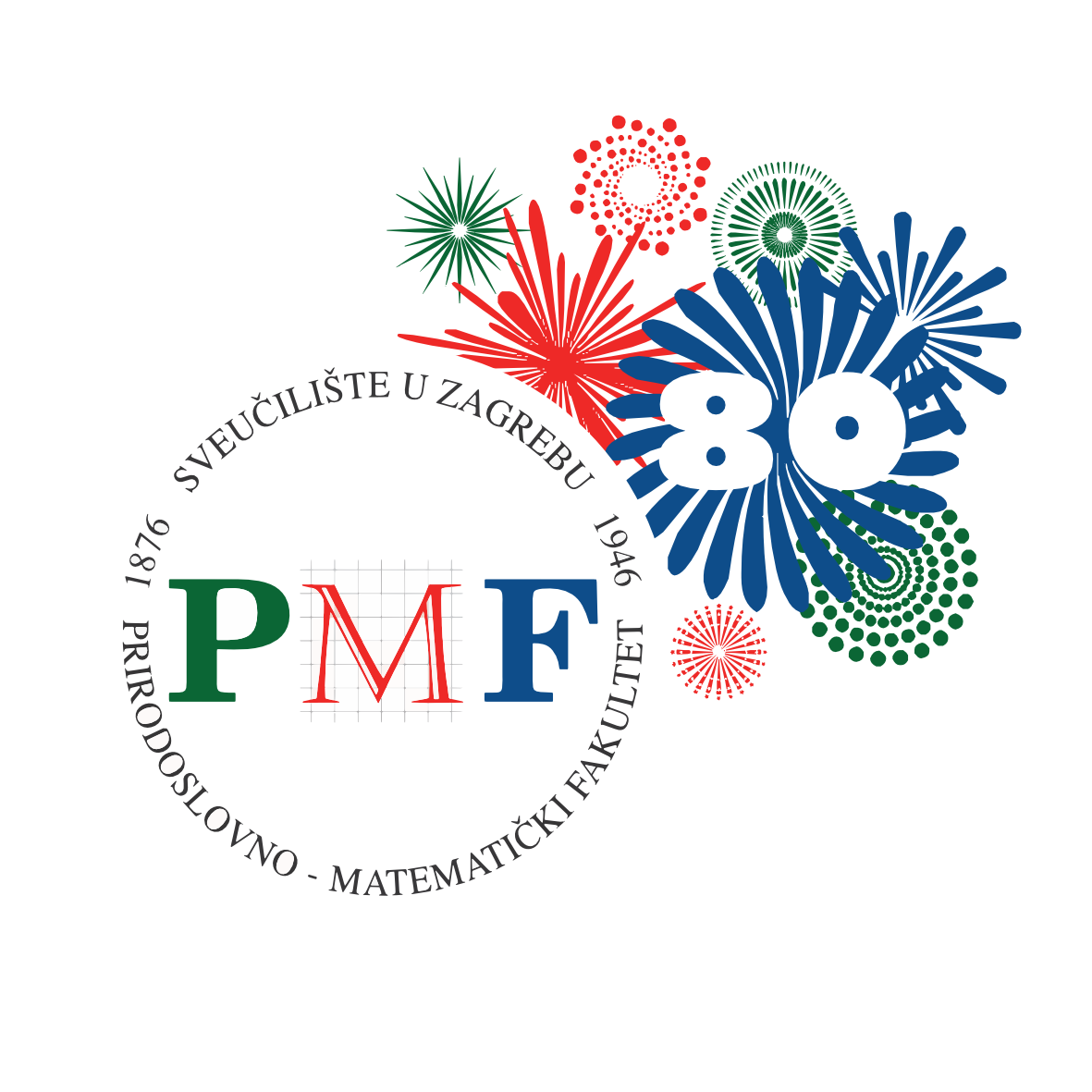
 Pristupačnost
Pristupačnost